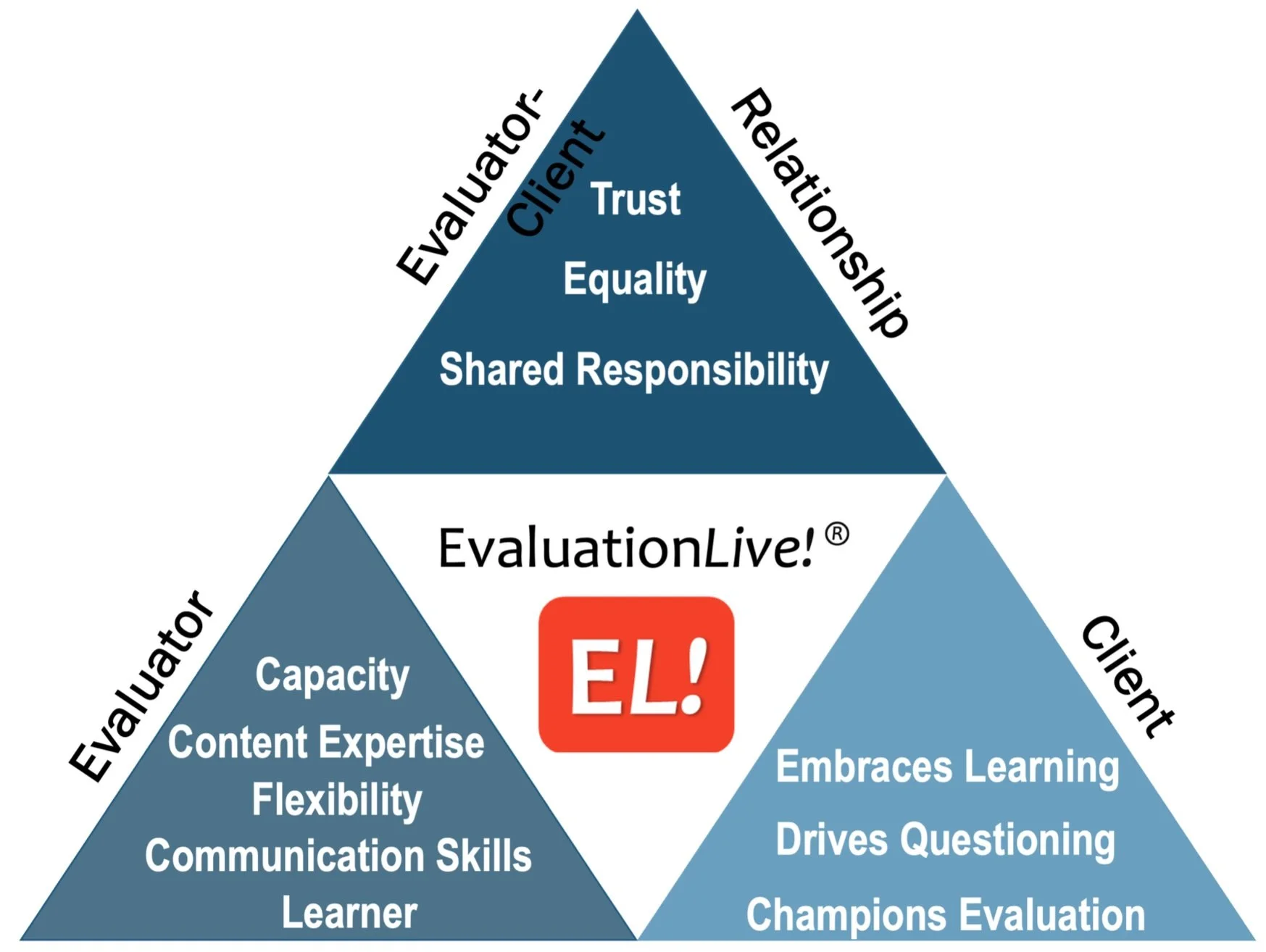The Model
What can an evaluator or program director do?
The evaluation is so “ho-hum.” People aren’t actively engaged. They’re not seeing the evaluation experience as useful. They don’t seem to care about the results.
How can this be fixed?
There are things that evaluators and their clients can do to breathe life into an evaluation, to create a sense of urgency, excitement, and hunger for learning during evaluation experiences. EvaluationLive! ® is a model that describes what needs to be present in the evaluator, the client, and the relationship between them to energize the evaluation and maximize its value to stakeholders.
Capacity
Content Expertise
Flexibility
Communication Skills
Learner
Elements of an EvaluationLive! Evaluator
Capacity
the evaluator is credible, culturally humble, and knows methodologies, measurement and management.
Content expertise
the evaluator has or acquires sufficient knowledge about the topic or intervention being evaluated to make meaningful interpretations of the findings and to have smart conversations with stakeholders.
Flexibility
the evaluator modifies the evaluation design as the need dictates and provides stakeholders with meaningful information at the right time, even if this means accommodating unanticipated deadlines.
Communication skills
the evaluator is adept at asking good questions, managing conversations, teaching, presenting, listening and writing.
A learner attitude
the evaluator is as much a learner as s/he expects clients to be, learning about both the program being evaluated and how to improve his/her own evaluation skills.
Embraces Learning
Drives Questioning
Champions Evaluation
Elements of an EvaluationLive! Client
Embraces learning
the client (organization) is interested in learning about its work, values taking time to pause and reflect, and truly appreciates less than perfect data and program results.
Drives questioning
the stakeholders co-create the evaluation questions with the evaluator and constantly want to ask more questions.
Champions the evaluation
someone among the stakeholders, usually the person who commissions the evaluation, is a champion for the evaluation. The champion understands the value of evaluation, can anticipate what information would be useful, can put the right information in front of the right people at the right time, and can motivate the organization to pause and reflect on its work.
Trust
Equality
Shared Responsibility
Elements of an EvaluationLive! Evaluator-Client relationship
Trust
both the evaluator and the client/champion truly believe that they are in each other’s corner, that they can reveal their struggles without repercussion, and that nothing about the evaluation findings will “leak” or be revealed without the client’s knowledge and approval.
Equality
the champion, stakeholders and evaluator are all in the relationship to learn. They are all experts in their own way and recognize/respect this in each other.
Shared Responsibility
the evaluator makes every effort to meet the needs of the stakeholders, while the client/champion recognizes that evaluation takes time and resources and works with the evaluator to make certain that the demands of the evaluation do not go beyond the resources available.

